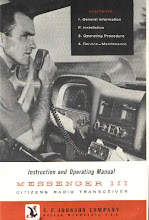 The Nine Muses
The Nine Muses Of the literary texts which provide the voice-over text (voiced by Vanessa Redgrave) for John Akomfrah’s The Nine Muses – ranging from Homer to Heathcote Williams - it is arguably the work of Samuel Beckett that is most frequently employed. The words of Molloy in his mother’s room are heard early in the film and return near its close. The mother’s room for Molloy is a place where he feels at once at home and abroad – it amounts to the Freudian uncanny. Mythology and ancient philosophy spoke of the matrix in this context. John Akomfrah is aware of this, from his research both archival and literary, in preparing this elegant film essay about mass immigration into Britain after the second world war. The two Beckett texts he chooses were first published in French, and already then the work of an author who had emigrated, first to an inhospitable London and later to a more welcoming Paris. The Paris in which he published his post war novels of course had succumbed to the onslaught of the war, occupation and Vichy and it is the changed landscape of the post war period that sees Beckett’s trilogy (of which Molloy formed part), as well as Waiting for Godot and Endgame all published or performed.
There is very little in the way of literary voices from the immigrant community in this film. There is no Derek Walcott, no Grace Nichols. Indeed the Beckett texts which Akomfrah uses are primarily concerned with ontological not political material. An allied displacement takes place on the level of the image: men standing in Alaska looking away from the camera to lakes, jetties, hills, rivers, walking along snowy paths and highways. The director – uncredited – stands and sits in what may be London; he looks at the camera. These interludes punctuate a kaleidoscope of footage from the archives.
Akomfrah uses are primarily concerned with ontological not political material. An allied displacement takes place on the level of the image: men standing in Alaska looking away from the camera to lakes, jetties, hills, rivers, walking along snowy paths and highways. The director – uncredited – stands and sits in what may be London; he looks at the camera. These interludes punctuate a kaleidoscope of footage from the archives.
The port is of course where the people arrived; the ports in the film (in either new or archive footage) itself are either derelict or idle, because of the season or the economy. The only populated spaces are those in the archive footage. Hence Akomfrah’s use of Alaska: sparsely populated it evokes the idea of a space to be filled, of resources under the snow, of potential for the prospector, or the immigrant willing to endure the climate.
Some of the material is hackneyed: Schubert for the snow, and bits of predictable Shakespeare – “this sceptered isle”, “if music be the food of love” – in particular feel overused. Equally, however, the juxtapositions can be fresh and startling: ‘The ballad of Finnegan’s Wake’ – one of the referents of Joyce’s unapostrophised novel - is sung over images of the snowy dockside.  Joyce’s Portrait is quoted not, as might be expected, on the question of national identity – about which the novel has much to say – but the thoughts of the young Stephen Dedalus on bed-wetting. His musings concern the education of the senses, and temperature, by extension climate and weather, but also home, where one sleeps, where one belongs (“first it’s warm, then it’s cold”). The ambivalence and fluctuating nature of belonging or feeling at one with a place.
Joyce’s Portrait is quoted not, as might be expected, on the question of national identity – about which the novel has much to say – but the thoughts of the young Stephen Dedalus on bed-wetting. His musings concern the education of the senses, and temperature, by extension climate and weather, but also home, where one sleeps, where one belongs (“first it’s warm, then it’s cold”). The ambivalence and fluctuating nature of belonging or feeling at one with a place.
If the film is content to let the viewer form their own conclusions about the signification of the figures in the landscape over which the voiceovers are delivered, Akomfrah is less flexible about other audio and visual connections, which on one or two occasions were arguably more concrete and not subtle enough. This was only an occasional unevenness however.
According to the director he wanted the dialogue to be between two worlds. Joyce’s Ireland was after all closer to Dublin than Kingston not least in terms of climate and the issue of visual blending in was available to Irish people. But as Beckett himself pointed out once one opened ones mouth (in England) the game was up.
The archive footage is mostly from the midlands – the Bull Ring shopping centre in Birmingham for example. This regional dimension is striking in itself in that it is not a metropolitan focus. Returning to elements of Handsworth Songs, the song element is still crucial in Akomfrah’s consideration of the immigrant imaginary.

1 comment:
In the unlikely event that anyone reads this piece of digital detritus from my brief foray into blogging, I seem to have lost the editing function to correct a silly error. I meant to add 'narrated by Vanessa Redgrave' to my musings on Robinson in Ruins, but obviously pasted into the wrong entry!
Post a Comment